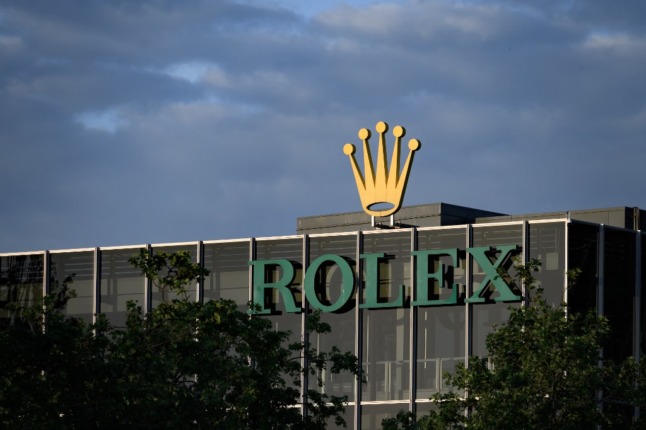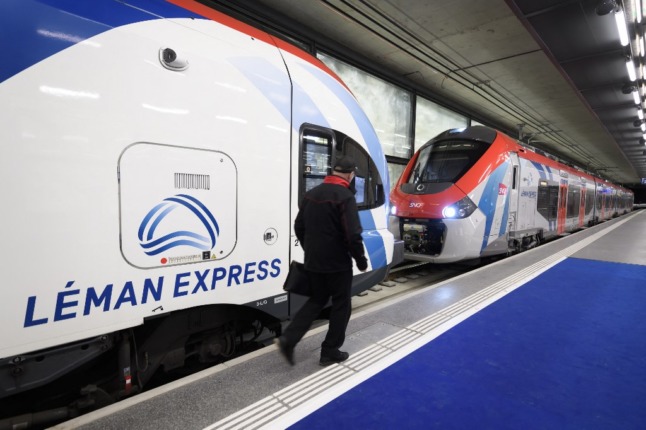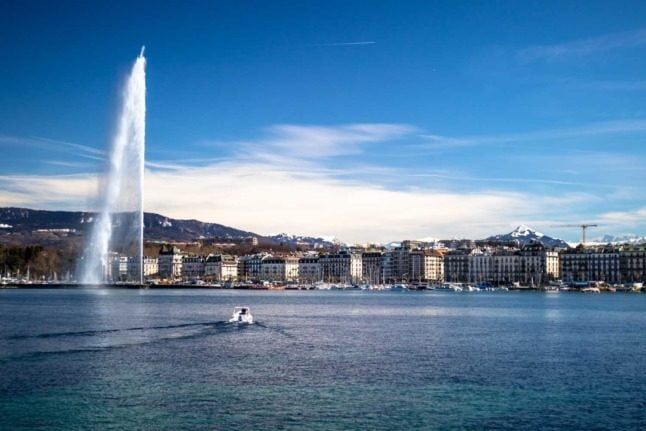If you live in Switzerland’s second-largest city, you have probably heard complaints ranging from “too expensive” to “too many French people here”.
However, you don’t need to look far or long to find good things about Geneva — the kind of things that residents (or visitors to the city) should not overlook.
Here are ten things you might (but should not) take for granted.
A melting pot of nationalities
Of all of Switzerland’s cities, Geneva is the most international.
Some 42 percent of residents are foreign nationals, giving the city a distinct cosmopolitan flavour. For that reason, it is much easier for foreigners to integrate and “feel at home” in Geneva than, say, in a small community where the vast majority of residents are native Swiss.
READ MORE: Zurich versus Geneva: Six big differences between Switzerland’s two biggest cities
Proximity to France
As Geneva lies right on the French border, shopping in the neighbouring communities in France has become a popular and frequent activity.
Cars with Geneva license plates parked in front of French supermarkets are a commonplace sight.
As food and many other products are cheaper across the border, the “shopping tourism” allows Genevans to save quite a bit of money.
MAPS: The best commuter towns when working in Geneva
Local communities
True, Geneva is big (by Swiss standards) city of just over 620,000 people, yet it doesn’t have the hustle and bustle of a large urban centre.
Rather, it conveys a “homey” feeling of a smaller town thanks to the various districts and neighbourhoods that make up this city, such as the Old Town, Eaux-Vives, Plainpalais, and Carouge.
READ MORE: Ten reasons why Geneva is a great place to live
Important role in world history
Geneva has played a major part in international diplomacy and politics, starting with the creation of the League of Nations in 1920 to resolve international disputes.
Currently, dozens of United Nations and other international organisations are headquartered in Geneva, including the World Health Organisation (WHO), World Trade Organisation (WTO), and International Labour Organisation (ILO).
READ MORE: Can I rent my apartment on Airbnb in Geneva and what are the rules?
…and speaking of history
You can’t speak of Geneva’s past without mentioning that it is the headquarters of the International Committee of the Red Cross, founded in 1863 by a local doctor Henri Dunant.
The history of this humanitarian movement is documented in the Red Cross Museum, located just steps away from the United Nations building (Palais des Nations).
Employment opportunities
A number of big multinational corporations are headquartered in Geneva, which means there are many job opportunities for skilled professionals.
READ MORE: Five quiet places to escape the bustle of Geneva
The canton is also home to some iconic Swiss companies, such as Rolex and Patek Philippe watches.
Plus, it is an important science hub, as the European Organisation for Nuclear Research (CERN), the famed home of the Large Hadron Collider, is here as well.

Public transportation
Geneva’s extensive network of trams and trolleybuses covers not only the city and canton, but also the neighbouring French communities, known as “Grande Genève” (Greater Geneva).
So it is easy to leave the car behind and go practically anywhere in the city and surrounding areas by public transport.

READ MORE: Geneva’s new regional cross-border trains to run all night on weekend
Excellent health care
Generally speaking, all Swiss cities provide high-quality medical services to their residents, but Genevans are lucky to have a major public medical facility on their turf.
The university hospital (HUG), which is not only the largest in Switzerland, but also one of the biggest in Europe, has a number of top specialists in their fields.
There are also private hospitals in Geneva, including Hôpital de la Tour.
READ MORE: Geneva hospitals call for volunteers as Covid-19 virus surges
Lake Geneva
Known here as Lac Léman, the 73-km-long, crescent-shaped lake is an integral part of Geneva, stretching all the way into the foothills of the Alps in Vaud to the east and France’s Haute-Savoie region to the south.
In the summer, a number of Geneva’s lakeside beaches are popular cooling-off and swimming spots for the city residents.

Swimming in Lake Geneva on a hot summer day is a treat. Photo; Haley Phelps, Unsplash
READ MORE: Five quiet places to escape the bustle of Geneva
Getting away from it all
Geneva is only one of three Swiss cities (the others are Zurich and Basel) that has an international airport.
This means travelling abroad is easy and convenient, especially as the airport, Cointrin, is located right in the city.
READ MORE: Ten things Zurich residents take for granted
Think we missed something or disagree about our list? Get in touch at [email protected].



 Please whitelist us to continue reading.
Please whitelist us to continue reading.
Member comments